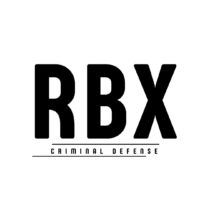What is a Misdemeanor?
A misdemeanor is a crime or public offense that is normally punishable by imprisonment in county jail. In contrast, a felony is punishable by death, imprisonment in state prison, or in the county jail. Examples of misdemeanors include DUI, assault, battery, domestic battery, drug possession, drunk in public, soliciting prostitution, and child endangerment.
Penalties
Misdemeanor charges are typically punishable by up to six months in county jail and/or a fine of $1,000. However, some convictions carry additional jail time, fines, and other penalties. For example, the maximum fine for a simple battery is $2,000. If the battery is committed against a police officer, it is punishable by up to one year in county jail.
Probation
The Court can sentence a defendant to probation as an alternative to serving time in county jail. Probation imposes requirements and restrictions on a defendant after a conviction. Probation can be formal (supervised), but misdemeanor probation is typically informal (unsupervised).
Failure to follow probation requirements and restrictions can result in a probation violation. In that case, the prosecutor or probation officer can ask for additional requirements or restrictions, or time in county jail.
Additional Penalties
The punishment for a misdemeanor conviction depends on the charges and the facts of the case. Depending on the case, the judge may order the defendant to stay away from certain places or people, attend classes or AA meetings, pay restitution to the victim, pay fines to state programs or funds, and complete community service.
Offenses involving the use of a vehicle often carry the added punishment of vehicle forfeiture and suspension or revocation of driver’s license. A conviction for a violent misdemeanor will result in the loss of the right to own or possess a gun for at least 10 years.
Misdemeanor Defenses
In California, the prosecutor must prove that the defendant had intent in order to obtain a conviction. There are two types of intent, general and specific. Specific intent crimes require that the person commits a deliberate act with the desire to cause a specific result. General intent crimes only require a deliberate act for a conviction.
Misdemeanor Diversion
As of January 1, 2020, almost all misdemeanor charges are eligible for diversion. A judge may continue a diverted case for a period not to exceed 24 months and order the defendant to comply with terms, conditions, or programs that the judge deems appropriate based on the defendant’s specific situation. At the conclusion of diversion the charges against the defendant are dismissed.
Defenses to Specific Intent Crimes
Accident, mistake of fact, and mistake of law are defenses to specific intent crimes because they show the defendant did not intend to cause harm. These defenses cannot be used against a general intent crime.
Defenses to General Intent Crimes
General intent defenses can also be used against specific intent crimes. They include, alibi, duress or threats, necessity, parental discipline, and entrapment. Mistake of law is not a defense to general intent crimes.
Violation of Constitutional Rights
A judge may dismiss a case if law enforcement violated the defendant’s constitutional rights. These rights include the 4th Amendment right to be free from unreasonable search and seizure and the 5th Amendment right to remain silent.
Reduction from Felony to Misdemeanor
When a charge can be filed as a felony or a misdemeanor it is referred to as a “wobbler.” The prosecutor is decides whether to file the case as a felony or misdemeanor, based on the specific facts of each case.
Reduction from Misdemeanor to Infraction
Infractions are the lowest level of offense in California. The judge or prosecutor can reduce certain charges from a misdemeanor to an infraction. Examples of charges that can be reduced to infractions include driving without a license, reckless driving, and disturbing the peace.
Expungement
An expungement sets aside a record of conviction and dismisses the defendant’s charges. Expunging cases is helpful when applying for jobs, as it allows the defendant to tell potential employers that they do not have any criminal convictions.
RBX Law is a licensed California misdemeanor attorney.

